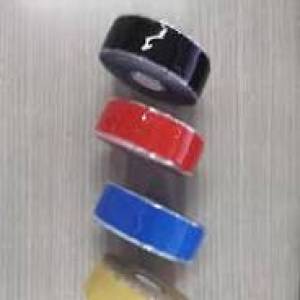Description
Fiberglass: The Versatile and Durable Material
Fiberglass is a remarkably versatile composite material known for its high strength-to-weight ratio, durability, and resistance to a variety of environmental factors. It's created by combining fine glass fibers with a resin binder, resulting in a material with exceptional properties that make it suitable for a wide range of applications.
Key Features & Benefits:
- High Strength-to-Weight Ratio: Fiberglass is significantly stronger than many other materials on a weight basis, making it ideal for applications where lightness and strength are critical. This is achieved through the reinforcing action of the glass fibers within the resin matrix.
- Corrosion Resistance: Fiberglass exhibits excellent resistance to corrosion, degradation, and chemical attack. This makes it a preferred choice for harsh environments, including marine applications, chemical processing plants, and outdoor infrastructure.
- Durability & Longevity: With proper care and installation, fiberglass products can withstand significant wear and tear, providing long-lasting performance and minimizing the need for frequent replacements.
- Design Flexibility: Fiberglass can be molded and shaped into a virtually limitless array of forms, allowing for intricate designs and customized solutions. It can be easily integrated with other materials to create hybrid structures.
- Insulation Properties: Certain fiberglass types offer excellent thermal and acoustic insulation properties. This makes it suitable for applications such as building insulation, soundproofing, and temperature control.
- Cost-Effective: Compared to other high-strength materials like steel or carbon fiber, fiberglass often offers a more cost-effective solution, especially for large-scale projects.
Types of Fiberglass:
The properties of fiberglass can vary depending on the type of glass fibers used (e.g., E-glass, S-glass, C-glass) and the resin system employed (e.g., polyester, epoxy, vinyl ester). Choosing the appropriate type of fiberglass is crucial for optimal performance in a specific application.
- E-glass: The most common type, offering a good balance of strength, cost-effectiveness, and chemical resistance.
- S-glass: Offers superior strength compared to E-glass, but at a higher cost. Ideal for high-performance applications requiring exceptional tensile strength.
- C-glass: Provides excellent chemical resistance, particularly against alkaline environments.
Applications:
The versatility of fiberglass makes it suitable for a vast range of applications, including:
- Construction: Roofing, pipes, insulation, reinforcing bars
- Marine: Boats, yachts, docks, fishing rods
- Automotive: Body panels, structural components
- Aerospace: Aircraft components, radomes
- Wind Energy: Turbine blades
- Sporting Goods: Surfboards, skis, fishing rods
- Electrical: Circuit boards, insulation
Choosing the Right Fiberglass:
Selecting the appropriate type of fiberglass requires careful consideration of the specific application requirements, including the desired strength, chemical resistance, temperature range, and budget constraints. Consulting with a fiberglass specialist is recommended for complex projects.
Conclusion:
Fiberglass is a high-performance material that combines strength, durability, and cost-effectiveness. Its versatility and wide range of applications make it a crucial component in numerous industries worldwide. This makes it a material worth considering for your next project that requires a balance of strength and lightweight construction.
